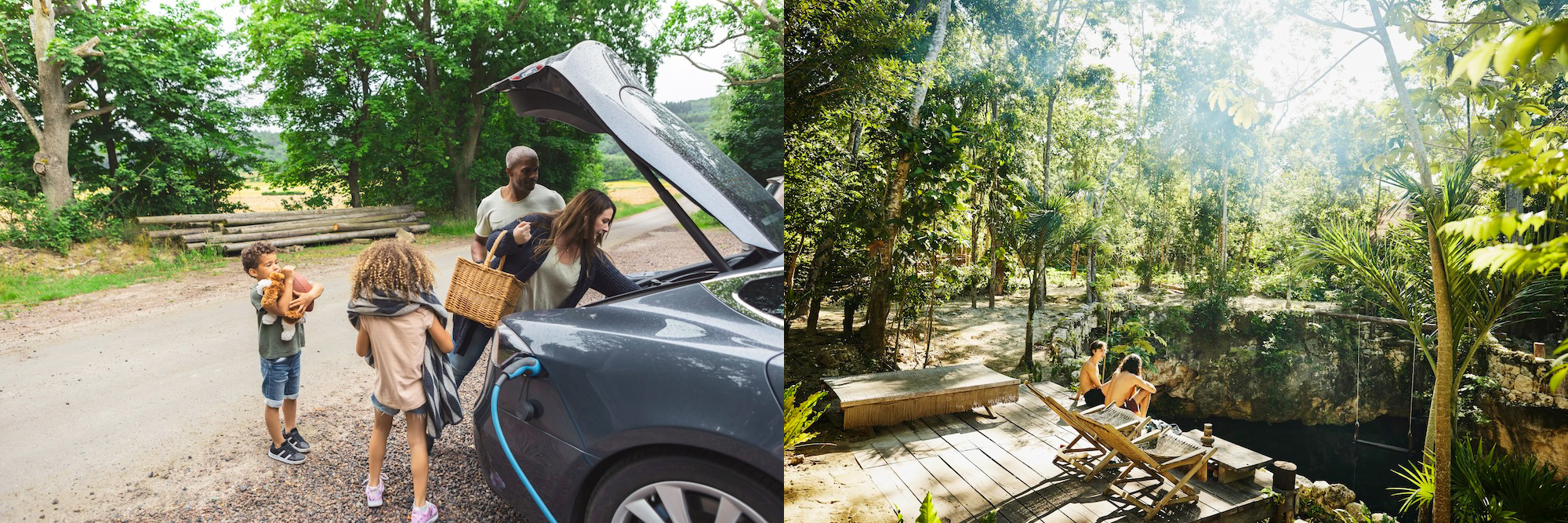- New data from the company's annual Sustainable Travel Survey shows that 45% of people feel it's important to travel more sustainably; do not have Key considerations when planning or booking a trip
- A third (33%) feel that the damage already done is irreparable and their choices will not change that, while a quarter (25%) of travelers We don't think climate change is as serious as people make it out to be.so that it becomes
- 44% believe governments have the most potential to combat the economic impact of travel, and 43% believe travel service providers hold the key to combating environmental factors, New insights ameliorate nascent consumer helplessness and continue to prioritize a more sustainable travel industry
Amsterdam – Today, Booking.com explores the latest consumer attitudes, priorities and influences related to sustainable travel, drawing on insights gathered from more than 31,000 travelers across 34 countries and territories. We have announced a new study. Annual survey reveals continued desire and awareness, with 83% of travelers admitting sustainable travel is important to them, while new insights show that travelers It shows that the continued challenges that the world is experiencing in order to make more money may be creating a sense of global fatigue. Sustainable travel choices.
A recent survey found that almost half (45%) feel that more sustainable travel is important; do not have It's a major consideration when planning or booking a trip, and 28% of travelers even report that they're tired of hearing about climate change all the time. With this in mind, opportunities for collective action are more important than ever to ensure progress towards a more sustainable travel industry remains a top priority.


Tackle new challenges with positive intentions
Looking to the future, 75% of global travelers say they want to travel more sustainably over the next 12 months, and (43%) feel guilty if they make unsustainable travel choices. I answered that I feel it. When it comes to motivating people who want to travel more sustainably, (32%) do it because they believe it's the right thing to do.
However, disillusionment with more sustainable travel choices may be overriding these intentions. A new field of exploration, surveyed for the first time this year, reveals that some travelers do not recognize the importance of being more mindful of their impact. A third (33%) feel that the damage already done is irreparable and that their choice to travel is not theirs. Nothing they make is going to change that. In fact, a quarter (25%) of travelers think climate change is not as serious as people think and are ignoring this issue that could affect their travel plans. Masu.
Additionally, some (28%) feel that the time they spend traveling is too precious to put sustainability at the top of their decision-making list. The lack of visibility of sustainability practices also contributes to a sense of helplessness. More than a third (34%) of travelers believe it is pointless to become more sustainable in destinations that do not practice sustainability.
Significant opportunity for shared responsibility and industry-wide delivery
The role that travelers can play in addressing the negative impacts of travel highlights expectations for collaboration. Remarkably, 71% of travelers say they want to leave a place they visit better than when they arrived (up from 66% last year), and this year's additional survey found that 45% are concerned about the social aspects of their trip. It has been shown that they believe they can counteract the effects themselves. . Meanwhile, 44% believe governments have the most potential to counter economic impacts, and 43% believe travel service providers hold the key to addressing environmental factors. Furthermore, 40% of travelers believe that governments have a responsibility to educate people about the impact of travel and tourism.
Responsibility also extends to how consumers are supported to realize their intentions. Finding accommodation that is labeled as more sustainable is more appealing to almost half (45%) of travelers, and consistency in certification standards is key to identifying these options. , 67% agree that all travel booking sites should use the same sustainable certification or label. But more travelers want to know more. why Accommodations with this label are down 17 points (52%) compared to the same period last year, highlighting the need for simple, clear communication that enables easy decision-making regardless of priorities. It shows gender.
A sustainable ray of hope
Despite the new complaints, travelers who say they are making more prudent choices feel that more sustainable travel experiences actually add value to their trips. This year's report's new field of research shows that 62% of travelers realize that by traveling more sustainably, they realize they are the best version of themselves and are able to take that positivity home with them, 67 We found that % of people feel motivated by witnessing sustainable practices while traveling. Make your daily life more sustainable. Of those who adopted sustainable behaviors while traveling, 96% took a tour or activity to experience authentic local culture, 93% shopped at small independent stores, and 93% planned a trip. % saw an improvement in sustainable behavior. This is to allow people to walk, cycle and use public transport.
While many travelers continue to feel optimistic and desire to make a more positive impact, there is a critical need for the industry to accelerate efforts to make it easier for everyone to make those choices. Opportunity is here. It is important that we continue to ensure that more sustainable options are not only readily available, but also reliable and easy to understand. That's why we believe further education, clear and consistent standards, and trusted third-party certification of legal and sustainable practices throughout the travel experience can really help. Signs of consumer frustration are concerning, but we need to focus on the impactful work we know can make a difference, not just to travelers, but to communities and destinations everywhere. It’s also a reminder to keep going. Daniel D'Silva, Head of Sustainability at Booking.com
The study, commissioned by Booking.com, included a sample of 31,550 respondents across 34 countries and territories: 1,000 from the United States, 1,000 from Canada, 1,000 from Mexico, 1,000 from Colombia, 1,000 from Brazil, 1,000 from Argentina, 1,000 from Australia, It was independently conducted on 500 people). 1,000 from New Zealand, 1,000 from Italy, 1,000 from France, 500 from Switzerland, 1,000 from the UK, 1,000 from Ireland, 1,000 from Germany, 1,000 from the Netherlands, 1,000 from Belgium, 1,000 from Denmark, 1,000 from Sweden, 950 from Croatia, 500 from UAE, 1,000 from India, 1,000 from China, 800 from Hong Kong, 1,000 from Thailand, 1,000 from Singapore, 1,000 from Taiwan, 1,000 from Vietnam, 1,000 from Indonesia, 1,000 from the Philippines, 1,000 from South Korea. 1,000 from Japan, 1,000 from South Africa, and 300 from Kenya). To participate in this survey, respondents must be over the age of 18, have traveled at least once in the past 12 months and plan to travel in 2024, and must Must be a decision maker or involved. Their travel decisions. The survey was conducted online and was conducted in February 2024.
about Booking.com
Booking.com, part of Booking Holdings Inc. (NASDAQ: BKNG), is on a mission to make it easier for everyone to experience the world. By investing in technology that removes friction from travel, Booking.com's marketplace seamlessly connects millions of travelers and delivers memorable experiences every day.
Follow us on TikTok and Instagram. twitter, like us on Facebook. Visit our Global Media Room for the latest news, data and insights.
Press Office Booking.com
+31 20 709 4743
Booking.com
View source






